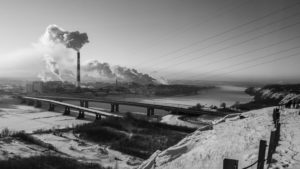Selon la législation, les ICPE se doivent de limiter leurs impacts sur la santé des populations et l’environnement. L’application des diverses réglementations relève de l’Inspection des installations classées, sous l’autorité des préfets. Selon la nature de leur activité, la nomenclature confère aux ICPE un régime de classement qui prend en compte l’importance des risques susceptibles d’être générés.
La Direction Technique de Gesip est à la disposition des exploitants d’ICPE, pour toute prestation de Conseil, Assistance et Audit. Elle est aussi très impliquée dans la rédaction de guides techniques à la disposition des industriels.
Actions de prévention des risques d’accidents industriels majeurs suite à la directive Seveso
Le critère prépondérant pour l’application de la réglementation ICPE est le régime de classement des installations, tel qu’il est défini dans la nomenclature. Il tient compte de l’importance du potentiel de danger de l’installation associé à son fonctionnement. Pour mémoire, le classement en propose 5 niveaux.
- Le régime de déclaration (D). Il concerne les installations aux activités peu dangereuses et peu polluantes. Une simple déclaration en préfecture est nécessaire. Certaines de ces installations sont sous le régime de déclaration avec contrôle périodique (DC) afin d’informer régulièrement l’exploitant de la conformité de ses installations avec la réglementation ;
- Le régime d’enregistrement (E). C’est un régime d’autorisation simplifié, qui concerne des installations pour lesquelles les mesures de prévention sont standardisées. L’exploitant doit justifier qu’il respecte les mesures de prévention des risques et n’occasionne pas de nuisances. L’exploitation est validée par un arrêté préfectoral ;
- le régime d’autorisation (A). Il concerne toute installation à risques graves pour l’environnement. Dans ce cas, des études d’impact et de dangers doivent être fournies. L’autorisation n’est donnée qu’une fois que les mesures de protection sont mises en place. Lorsque des risques importants pour la santé ou la sécurité des populations existent, il s’agit du régime d’autorisation avec servitude (S).
Prestation de conseil aux ICPE
Le service technique de Gesip accompagne les industriels dans l’évaluation des risques que leurs installations peuvent engendrer ainsi que dans la gestion de ces risques. Pour ce faire, Gesip rédige des guides techniques à l’usage des industriels. Ces documents opérationnels à haute valeur ajoutée font figure de référence.
À lire : Directive Seveso : formation, conseil et audit
Accompagnement à la rédaction de l’étude de dangers
Grâce à son expertise reconnue, Gesip peut accompagner les exploitants à identifier les dangers de leur installation, à en analyser les risques, à proposer des axes d’amélioration afin de les réduire, ainsi que des moyens de prévention.
Accompagnement sur le dossier ICPE ou la demande d’enregistrement
La prestation de conseil de Gesip porte sur les activités suivantes :
- Le classement au titre de la nomenclature ICPE ;
- Le maintien à jour de son statut SEVESO (Seuil Bas ou Seuil Haut).
En effet, pour toutes les installations classées pour la protection de l’environnement, Gesip guide les exploitants dans la rédaction de leurs dossiers ICPE ou dans les mises à jour de leurs dossiers de demande d’autorisation.
Ces dossiers doivent être rédigés en précisant la nature des installations, leur fonctionnement, leurs conditions d’utilisation et les modes de gestion des déchets émis. Ils doivent également expliciter les dispositions envisagées en cas d’accident.
En cas de demande d’enregistrement d’un nouveau site, les équipements doivent être décrits ainsi que leur mode de fonctionnement.
Le projet doit être compatible avec les prescriptions des services de l’urbanisme.

